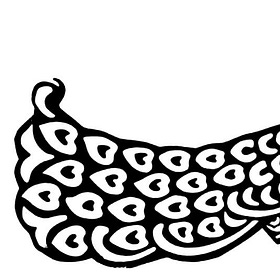—: To My “Christian Brother” :— Slap me, If you wish to! Kick me, If you wish to! I shall accept all of these With resignation. But I can bear no longer: Your predatory smile, Your calculating eyes, Your wooden hand-clasp, And your clinking alms! Slap me, If you wish to! Kick me, If you wish to!
This is the only known poem by Chou Han, a Chinese exchange student at the University of Nebraska-Lincoln, published in the school’s literary magazine, The Prairie Schooner in 1928. A stark portrait of anti-Chinese racism and religious hypocrisy in America, woven into the fabric of white American society by laws like the Chinese Exclusion Act (1882–1943); “Because of their non-white race, their non-Christian way of life, and their non-alphabetic language, the Chinese experienced a multiply charged hatred and discrimination in comparison with their White European immigrant counterparts.” (Mimi Yang, Tracing the Roots of Anti-Chinese Sentiments in US History, 2022)
“Like other little magazines, the Schooner was not published for money’s sake, paid nothing for contributions, and sought to print the work of new writers not yet accepted by the wealthy, policy-bound periodicals. Unlike most little magazines, the Schooner has been long-lived... and it has published the early work of more than twenty writers whose subsequent appearances in print have brought them general recognition,” (Maurice Johnson, 1937) and is still published today, under the editorship of Kwame Dawes.
For Chou Han by Dick Whyte i borrow water from the sky & place it in the earth, numb to all the blood outside of bodies gods request & the coriander grows, even when we do not
Forgotten Poets Presents:
Forgotten Poems, a living anthology of obscure and out-of-print poetry from the late-1800s and early-1900s. Explore the archives:
Edward Perry - 2 Short Poems (1927)
—: Colors & Life (1927) :— Colors Blacks, browns, Tans and yellows; Like flowers We're a race Of numerous colors. Life Birth, Love, Sickness, Then death. We toil for tomorrow; Leave our loved ones in sorrow . . .
More Asian American poetry . . .
Yorozu Tsurumi - 4 Tanka (1926)
—: Autumn :— The hills dressed in autumn fire Burn crimson. A curved leaf flutters— Falling.











The coriander got me too...
The poem by Chou Han really captures something that is all too pervasive in a lot of communities but rarely expressed... It is a good perspective to be exposed to.
And your poem is delicately moving... The end with the coriander especially got me.